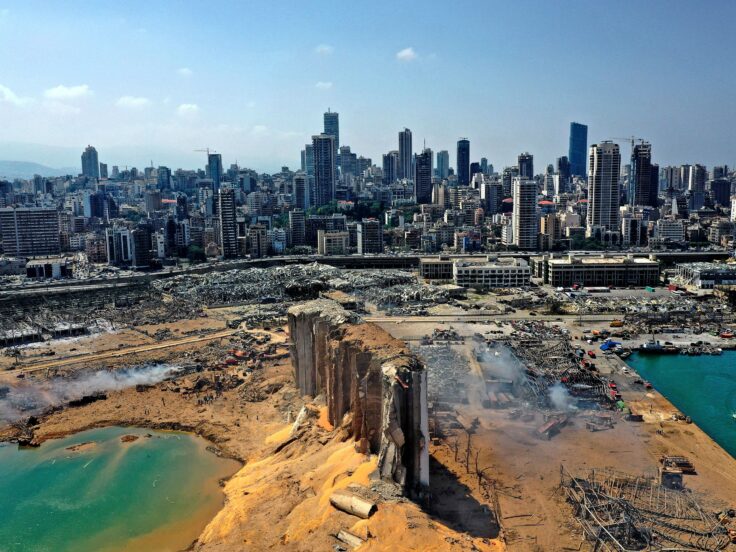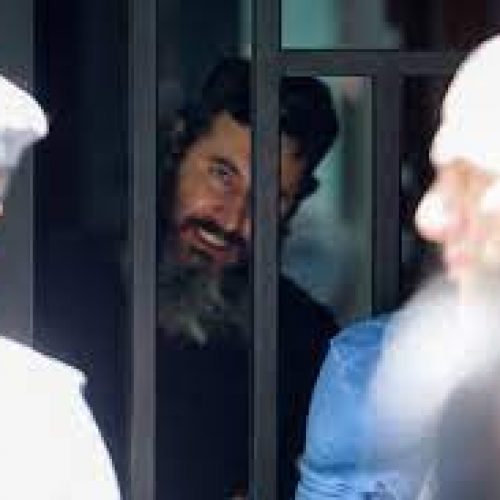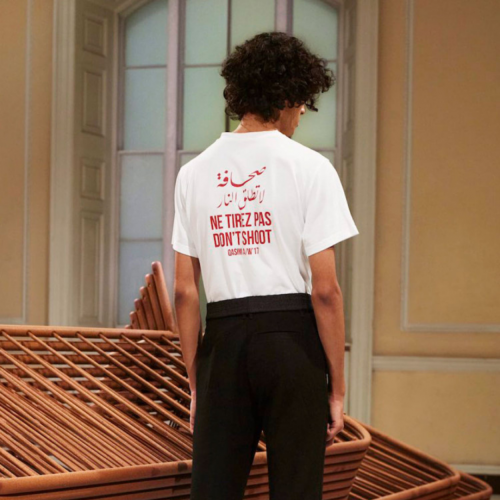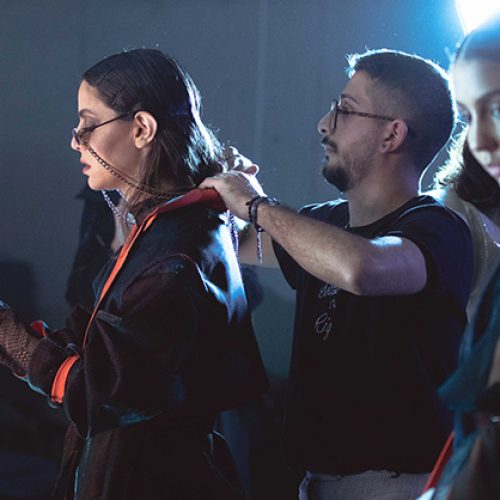People often say that the feeling of home isn’t about where you are physically but where you belong.
Day for day, one year ago, Lebanese people from all over the world helplessly witnessed a mournful moment in the city many call home. On August 4, an explosion rocked Beirut’s port, sadly marking yet another blood-stained headline emanating from the Middle East. In reality though, it was a true personal loss for millions.
On top of the global pandemic which had put strain on a country that was already struggling to find breath, the Beirut blast is an event in Lebanese history that many will find hard to forget.
Taking the lives of hundreds in a matter of seconds, the large amount of ammonium nitrate stored at the heart of the capital psychologically scarred many who still find it difficult to move on.
In the lead up to the anniversary of the tragedy, we spoke with five young Lebanese on how they navigated through the tragedy between anger, guilt as well as the dire craving for justice and accountability.
Elissar Haidar, 23
Honestly, the Beirut blast felt like rock bottom but things have gone from bad to worse since then. Inflation, fuel shortages, and the banking situation have only gotten worse since then and it’s hard to see a way out. I definitely hold a grudge and it’s a common sentiment amongst Lebanese people, the ammonium nitrate in the port was basically a ticking-time bomb that we all lived near for 7 years without knowing. It was a completely avoidable disaster that resulted from governmental negligence, 218 people lost their lives and no justice has yet been served. The victims’ families are still protesting for justice or at least answers.
I think what we saw immediately right after the blast and the only thing that keeps me hopeful personally is the community. There was no response from Lebanese authorities but people from all over Lebanon took to the streets to clean up, fundraise, and re-build. Community-based groups are the catalyst for sustainable change and that’s all I have faith in personally. Right now as it stands, there’s no state, structure, system, and no kind of welfare society so really all we have is the people. The only thing a Beiruti can hope for now in my eyes is justice and a complete restructuring of our political landscape.
Camille Lorfing, 23
Globally after a year, the feeling is injustice – things have gotten worse and worse and it’s as if the country was free falling straight to hell. We expected stuff to change and slowly get better and instead we got the depreciation of the LBP and the horrific economic crisis.
Tarek ElMendelek, 27
To be honest it has been non-stop anxiety ever since. I feel like there is a rock in my stomach. The only thing I can think of is August 4th although there are a million other things happening at the same time. It has just been heavy, and it’s quite hard to put the feeling into words.
The other thing I find disturbing is people judging on whether you are going down to protest or not. Personally, I won’t be. I don’t want to be beaten up or shot at – I don’t need that. I have too much to lose. I think I’ve done my fair share and will be paying my respects in my own way but I don’t like the judgmental feeling because everyone is coping and grieving in their own way.
All we want is justice, to lift the immunity from the people involved and taken to court, some change or anything different. This apathy needs to go away. People got too used to this. I feel like we just need hope itself although it may seem impossible at this point.
Hassan Trablousi, 22
Even one year later, it still doesn’t feel real. In Lebanon there is always a new crisis happening which doesn’t allow you to digest what is going on, or even possibly forces you to forget as you have to deal with the new issues at hand. So right now, I feel angry, confused and powerless at the fact that one year on things are still the same and there are still no answers for what happened.
It’s a bit strange to say this but after the blast there was a unity among the people that I have never seen before. At one point it felt like the blast was a wakeup call for Lebanon and that we were on route to see big changes that will better the lives of people. Now one year on, we are facing an economic and financial crisis where our currency has lost over 90 percent of its value. People are in a worse position than we were right after the blast hit… so much for the wakeup call and the supposed turning point.
Maya Akra, 30
It was quite hard to experience this from away and to not be able to help on the ground. I feel like I didn’t go through the trauma the same way as people did in Beirut when it happened. Although it still hurts, to not say more, I really felt like I couldn’t do much from where I was.
The first time I went past the location of the bombing last December I started screaming frantically because it was too much to handle and Beirut holds a real dear place in my heart. Seeing it fall to pieces was really depressing and agonising and not something I’m used to. I always see Beirut as a strong city and to see it the way it is saddening.
I am always anxious now when I’m in Beirut. That something might happen and so I live in fear. It was the hardest thing to not be in my country and couldn’t go back because my country doesn’t feel safe – this was the hardest part and everyone who lives abroad must feel the same to some extent.
I feel like going to the streets now and protest, to reclaim this patriotic feeling that I deserve and missed last year to help and rebuild my country.








